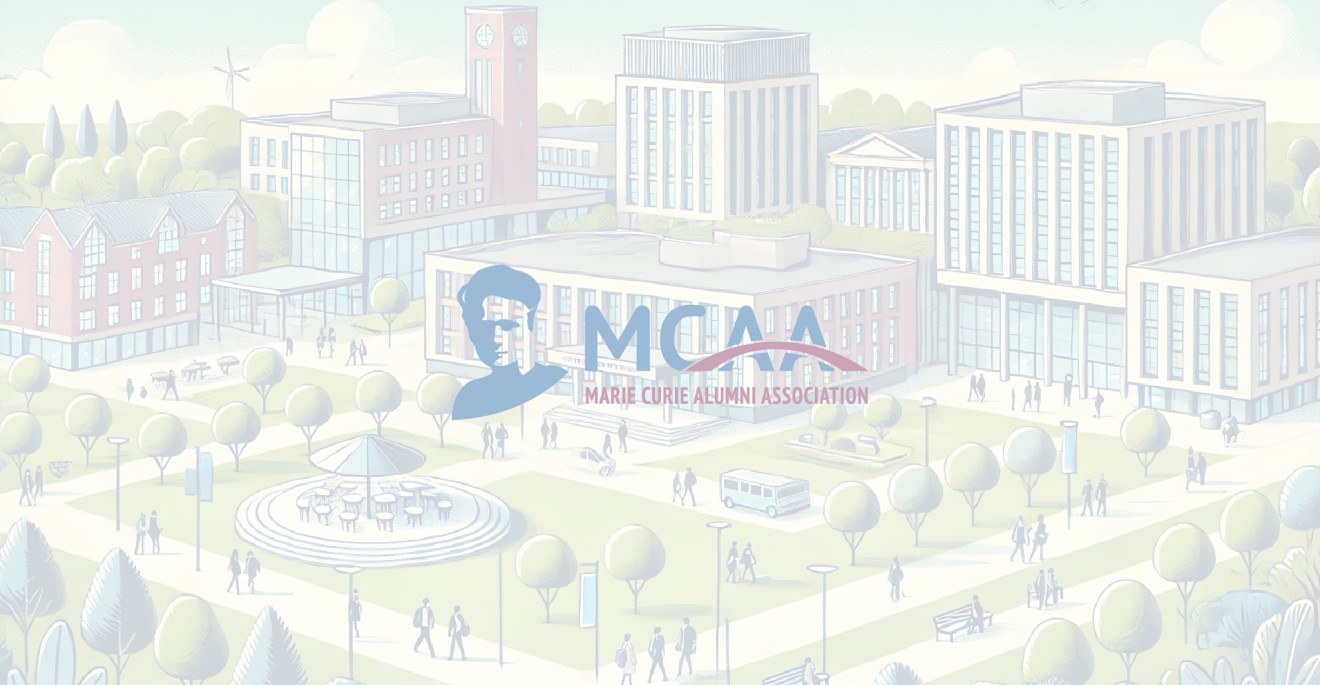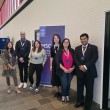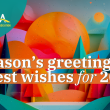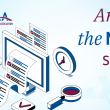Meet Magda Theodoridou, Chair of the Genders, Equity, Diversity & Inclusion - GEDI Working Group

Magda Theodoridou has been actively working on promoting equity, diversity and inclusion within the MCAA. She speaks to us about the scope and future plans of the newly rebranded group.
Magda, in her own words
I was born and raised in Greece. I hold a PhD in Conservation Science from the University of Bologna in Italy, which was funded by a Marie Curie Host Fellowship (EPISCON project), and a diploma in Civil Engineering from the Aristotle University of Thessaloniki in Greece. I have worked as a research and teaching fellow in Italy, Hungary and Cyprus, with scientific contributions to the design and development of novel construction materials and the innovative application of micro/non-destructive techniques for building materials’ characterisation. In 2018, I moved to the UK to work as a Marie Skłodowska-Curie actions (MSCA) Individual Fellow at Cardiff University on self-healing geological materials and structures (GEOHEAL project). In March 2020, after the completion of my MSCA Individual Fellowship, I joined the Hub for Biotechnology in the Built Environment and the School of Engineering at Newcastle University as a Newcastle University Academic Track (NUAcT) Fellow, where I am leading research on developing biological self-healing and other novel biotechnological processes for sustainable building and smart heritage conservation.
Magda has been an active member since she joined the MCAA in 2014. She was one of the founding members of the Gender Equality and Diversity for Mobile Researchers in Science (GEMS) Working Group, the predecessor of the Genders, Equity, Diversity & Inclusion (GEDI) Working Group that she now chairs.
“My experience in leading interdisciplinary research, advocating for GEDI, as well as having personally experienced the benefits and challenges of mobility, are valuable assets that have enabled me to bring MCAA closer to its goals of promoting a responsible and ethical research environment through the activities of the GEDI Working Group,” she says, when explaining her motivation to contribute to the Working Group.
Magda emphasises the importance of values to achieve her goals. “I strongly believe in the power of equity, diversity and inclusion (EDI) in all aspects of our society and I have dedicated myself to ensure these among researchers,” she says.
From GEMS to GEDI
In the past years, Magda has contributed to the rebranding of the GEMS Working Group. “The Working Group moved from a specific focus on enhancing the inclusion of female researchers to a broader scope: promoting equity, diversity, and inclusion in research beyond any individual characteristic,” she explains.
Magda has also worked on improving both internal and external communication within the Working Group. She is proud of the results. “Thanks to this strategy, we succeeded in creating a safe and welcoming space where members feel represented and motivated,” she says.
The new, rebranded GEDI Working Group aims to investigate challenges and develop possible solutions to boost equity, diversity, and inclusion at all research career stages – from early stages to leadership levels. Another goal is to ensure that the MCAA itself stands for and implements fair treatment of any underrepresented group in all its activities.
It is worth noting that, in the past three years, the number of engaged members in the Working Group has grown from 7 to 33 active members. The number of men is also increasing, currently estimated at 25%.
Happy with these first results, Magda explains that the priority of the Working Group in the next two years will be to focus on increasing its visibility, strengthening interactions with policymakers and working towards financial sustainability.
Promoting values
The Working Group’s policy Task Force, coordinated by Tanya Romacho, is currently working on a survey that will collect data about discrimination and harassment in research. This action is taking place in collaboration with the Survey and the Policy WGs. “We are planning to analyse these data and use the results to endorse a request for an MSCA Ombudsperson”, explains Magda.
The most recent event of the WG raised awareness about the situation of researchers at risk, refugee researchers and the importance of academic freedom (Organisers: Nadia Metoui, Magda Theodoridou / Moderator: Brian Cahill). “The role of researchers and academics in emerging democracies will be explored in upcoming event. This theme is spearheaded and facilitated by Nadia Metoui” adds Magda.
The Chair of the GEDI Working Group also underlines the importance of families and work-life balance in a researcher’s life. “On the 6th of May, we will hold a seminar discussing and mapping different geographical and cultural challenges faced by mobile researchers in their personal and family life,” she says. The event is organised by Magda, Brunella Balzano and Mark Bason.
Finally, the Working Group is planning activities to raise awareness and trigger debate around identity, ethnicity, sexual and gender preferences and disability. “Gian Maria Greco, Alexandra Nothnagel and Nadia Metoui are organising the seminar ‘Fairness in Artificial Intelligence: promoting diversity or reinforcing discrimination?’, which will take place virtually on 4 June. Also, we aim at reaching a wider audience with video campaigns for social media. We started this initiative last year with a series about LGBTQ+ researchers. This year we are planning two campaigns, one about researchers with disabilities and one about refugees and researchers at risk,” explains Magda.
Building resilience
While the COVID-19 pandemic posed numerous challenges, Magda highlights the many lessons learned from the past year that have helped make the Working Group and its activities more resilient. “We immediately redesigned our activities in a way that was more accessible and open to a wider decentralised audience. In this way, we made our events and meetings more accessible to individuals with disabilities, who otherwise would not be able to attend physical events,” she says.
Above all, Magda highlights that lockdowns can’t stop researchers from making this world a better and safer place for all! “We have proven that we can adapt to change and this new online world has opened us up in an unimaginable way. Be kind to yourself and to your colleagues. It’s a challenging period and we may not always be as productive as we would like to be and that’s OK. Try to enhance communication with your team, your loved ones, share your concerns and be patient,” she concludes.
Did you like Magda’s story? Our latest newsletter gathers numerous interviews with the recently elected MCAA chairs, check it out!


